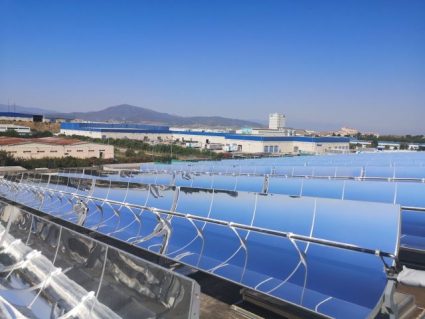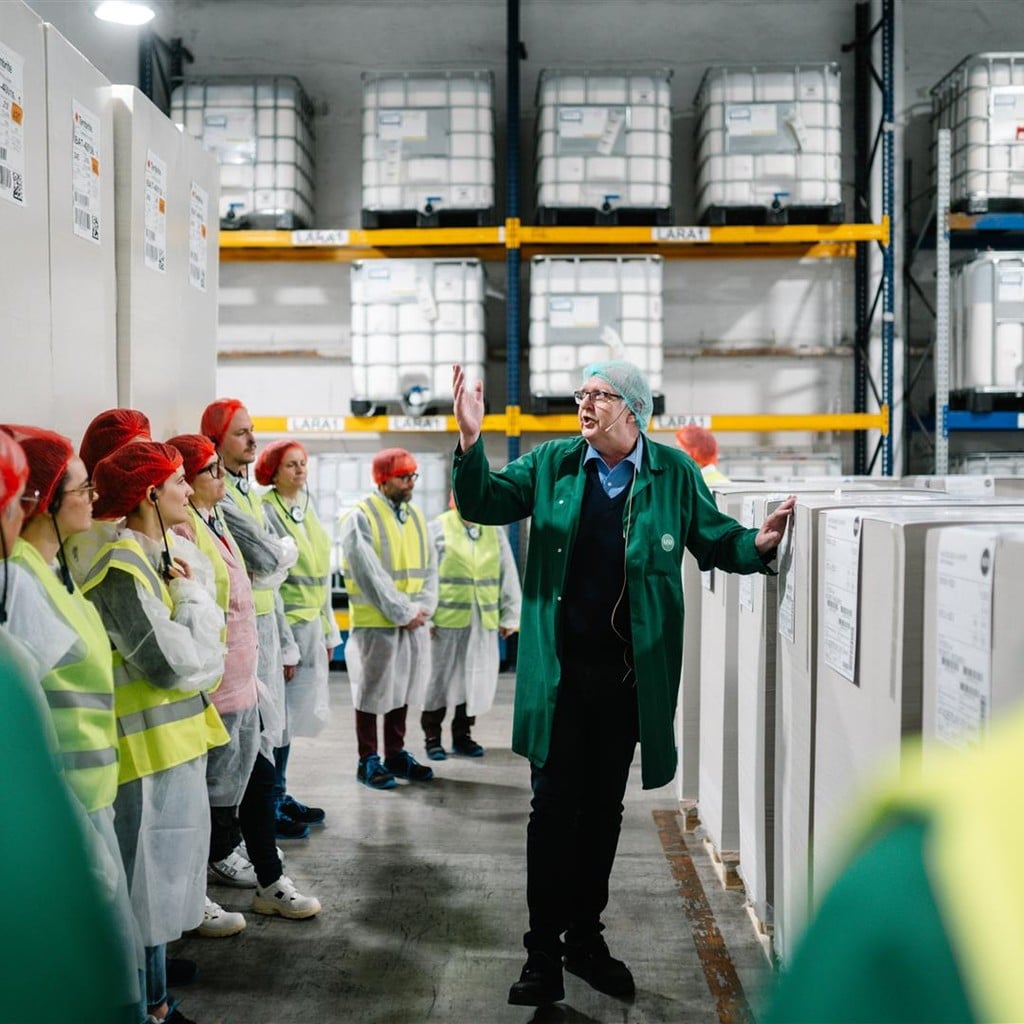Investments To Mitigate Climate Change: How MM Group’s Decarbonisation Initiatives Forge a New Path Forward
To mitigate climate change MM Group is taking bold steps toward decarbonisation, setting and achieving targets that align with the Science Based Target Initiative (SBTi) and global climate agreements. MM’s framework drives investment in cleaner energy, efficient machinery, and collaborative supply chain strategies.
In 2024, the Group implemented an internal CO2e pricing system to create cost transparency for capital expenditure projects and electricity procurement. By assigning a financial value to carbon emissions, this system drives low-carbon innovation and prioritises projects to reduce the company’s environmental impact.
“As industrial operators, we’ve committed to a net-zero goal by 2050, with an interim goal to halve our CO2e emissions by 2030,” says Katja Tuomola, Head of Global Sustainability and Safety. Today, over 58% of MM’s plants and mills are powered by green electricity. The transition has required significant investment and alignment across management to prioritise renewable energy solutions, including ten new solar power plants.

MM Graphia in Izmir, Turkey, pioneers an industrial-scale renewable thermal energy system,
meeting 80% of the plant’s heating and cooling needs.
Clear Incentives for Sustainable Action
As the demand for transparency and accountability grows, MM Group’s reporting tools have become a vital resource for customers seeking to thrive in a sustainability-driven economy. Sharing this data with customers is not just a matter of corporate responsibility but also a necessity driven by regulatory requirements, shareholder expectations, and consumer demand.
Accurate and transparent reporting allows customers to integrate this data into their own environmental assessments and disclosures, which are critical for maintaining compliance and securing financial incentives like green loans or bonds. Companies unable to meet their sustainability commitments not only fail their duty to mitigate climate change but also face potential brand damage from end consumers and investors, who increasingly value measurable progress toward environmental goals.
“Our emissions become part of our customers’ Scope 3 targets” explains Tuomola. “By providing reliable emissions data, we empower customers to strengthen their sustainability credentials and mitigate the risks associated with failing to meet these commitments.” This alignment ensures customers can demonstrate progress towards mitigating climate change and maintain a competitive edge in a market that rewards environmentally conscious practices.
One of the most recent successes was MM Board & Paper’s continuous reduction in carbon emissions for its cartonboard qualities. For instance, an average decrease of 84 kg CO₂e per tonne was achieved for the recycled cartonboard MCM®. As Europe’s top-selling recycled cartonboard, it is produced in close proximity to European customers, thereby reducing transport emissions. MM Board & Paper’s products are renowned for their consistent quality, which contributes to sustainability with less breakage and waste during production.

Decarbonisation initiatives reduced the average footprint of MCM® recycled cartonboard by 84 kg CO2e/t.
The Role of Collaboration and Regulation
While regulatory frameworks and policies are essential to advancing decarbonisation, they can be a double-edged sword. Regulations sometimes overlook essential input from industries, resulting in solutions that may not be the most effective. MM actively participates in industry associations to help shape decision-making processes and ensure the development of frameworks that are practical and globally applicable.
Recognising the vital role of internal collaboration, MM has sustainability trainings to engage employees at all levels. These sessions provide an overview of how sustainability is embedded in everyone’s work at MM. They also offer in-depth exploration of more complex topics for those who require it in their day-to-day roles. By fostering a collaborative culture, the company empowers its workforce to take an active part in emissions reduction efforts, creating a meaningful collective impact.
MM Group’s Long-Term Vision
Looking ahead, MM aims to achieve net-zero emissions by 2050, with a focus on renewable energy adoption, supply chain innovation, and energy efficiency improvements. The company’s holistic approach to sustainability integrates emissions reductions with broader environmental stewardship of the entire value chain including everything from production to recycling the fibre to use it again.
Scope 3 emissions, which stem from supply chain activities, present one of the greatest challenges and opportunities in MM’s decarbonisation journey. The company is working closely with suppliers to align sustainable practices, driving innovation across the value chain. These efforts have already had a positive impact with a 24% reduction in scope 3 emissions since 2019.
By prioritising renewable energy, implementing innovative tools like internal CO2e pricing, and fostering industry-wide collaboration, MM Group is building a pathway to a net-zero future. As Tuomola puts it, “Achieving these goals isn’t just about reducing emissions – it’s about creating a more sustainable business model that benefits people; our customers, stakeholders, and the planet.”



